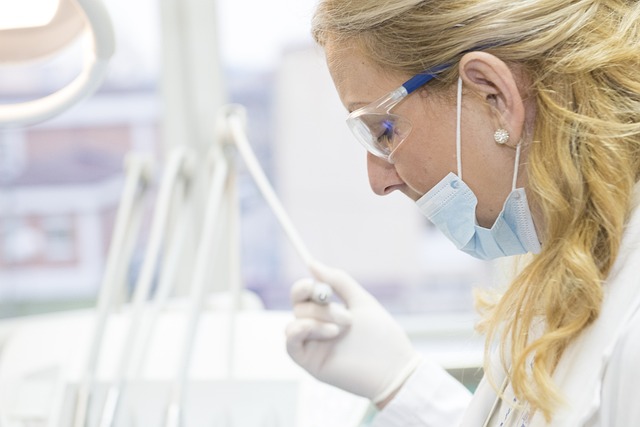Anti-inflammatory therapies have evolved significantly with the advent of stem cell therapy, PRP therapy, and peptide therapy, all of which offer advanced pain relief treatments and contribute to holistic inflammation management. Stem cell therapy leverages the body's regenerative abilities to repair damaged tissues and modulate immune responses, addressing the root cause of inflammation. PRP therapy utilizes a patient's concentrated growth factors and platelets to accelerate healing at injury sites, minimizing pain and promoting tissue recovery. Peptide therapy, meanwhile, targets specific immune pathways with precision to reduce inflammation without broad-spectrum side effects. These regenerative medicine approaches are tailored to individual needs, offering a personalized strategy for managing chronic inflammation in a way that aligns with overall health and wellness, marking a transformative shift in the field of anti-inflammatory treatments.
Embarking on a journey to bolster immune health often begins with addressing the root cause of many health issues: inflammation. This article delves into the transformative power of anti-inflammatory therapies, offering insights into innovative solutions such as stem cell therapy for inflammation, PRP therapy for inflammation, peptide therapy for inflammation, and more. Explore how these cutting-edge interventions, alongside holistic inflammation management and advanced pain relief treatments, can be integrated into a comprehensive strategy for optimal health. From regenerative medicine’s perspective on inflammation to the everyday application of anti-inflammatory solutions, this guide serves as your roadmap to enhanced immune resilience and wellness.
- Harnessing Anti-Inflammatory Therapies: A Comprehensive Guide to Enhancing Immune Health
- Stem Cell Therapy for Inflammation: Understanding Its Role in Immunomodulation
- Exploring PRP Therapy for Inflammation: An Emerging Approach in Regenerative Medicine
- Peptide Therapy for Inflammation: The Science of Targeted Immune Support
Harnessing Anti-Inflammatory Therapies: A Comprehensive Guide to Enhancing Immune Health

Anti-inflammatory therapies hold a pivotal role in enhancing immune health by mitigating excessive inflammation, a common contributor to various health conditions. Stem cell therapy for inflammation emerges as a pioneering approach within regenerative medicine for inflammation, leveraging the body’s own healing capabilities. This cutting-edge treatment involves the administration of stem cells that can differentiate into specific cell types, potentially repairing damaged tissues and modulating the immune response to reduce inflammation.
In addition to stem cell therapy, platelet-rich plasma (PRP) therapy for inflammation is another advanced pain relief treatment gaining traction. PRP harnesses a patient’s own blood components to accelerate healing by delivering a high concentration of growth factors and platelets to the injury site, thereby promoting tissue repair and alleviating symptoms of inflammation. Furthermore, peptide therapy for inflammation is an innovative strategy that utilizes specific amino acid sequences to regulate immune system activity and reduce inflammatory responses, contributing to holistic inflammation management. By integrating these therapies with a comprehensive lifestyle approach, individuals can achieve a more balanced immune response and maintain optimal health. Advanced pain relief treatments, including PRP, stem cell therapy, and peptide therapy, collectively offer a non-invasive alternative to traditional treatments, aligning with the growing trend towards holistic inflammation management in regenerative medicine for inflammation.
Stem Cell Therapy for Inflammation: Understanding Its Role in Immunomodulation

Stem cell therapy has emerged as a promising avenue in the realm of anti-inflammatory therapies, offering a potential pathway for holistic inflammation management. This cutting-edge approach harnesses the restorative and regenerative properties of stem cells to modulate the immune response, effectively targeting the root cause of inflammation rather than merely its symptoms. The versatility of stem cells allows them to differentiate into various cell types, which can then be guided to influence the immune system’s balance and reduce excessive inflammatory responses. This personalized treatment not only alleviates pain but also promotes tissue repair, positioning it as a pivotal component in advanced pain relief treatments.
In addition to stem cell therapy, other anti-inflammatory therapies like PRP (platelet-rich plasma) and peptide therapies are gaining traction for their roles in immunomodulation. PRP therapy leverages a patient’s own blood components to accelerate healing and tendon repair, indirectly reducing inflammation through the body’s natural healing processes. Peptide therapies, particularly those containing anti-inflammatory cytokines, can modulate immune cell activity, further enhancing the body’s ability to manage inflammation. These holistic approaches are integral to regenerative medicine for inflammation, offering patients a suite of treatment options that cater to their specific needs and promote overall wellness.
Exploring PRP Therapy for Inflammation: An Emerging Approach in Regenerative Medicine

Platelet-rich plasma (PRP) therapy has emerged as a promising modality within the realm of regenerative medicine, particularly in managing inflammation. This advanced treatment harnesses the patient’s own blood components to accelerate healing and alleviate pain. PRP therapy for inflammation involves concentrating a patient’s platelets—rich in growth factors—and reintroducing them into injured or affected tissues, promoting natural anti-inflammatory responses and fostering tissue repair. As an alternative to traditional anti-inflammatory therapies, PRP is gaining traction for its ability to target inflammation at the source while minimizing systemic side effects. Moreover, when combined with stem cell therapy for inflammation, PRP’s efficacy can be further enhanced, offering a holistic approach to inflammation management that supports long-term health and recovery.
In the realm of holistic inflammation management, peptide therapies are also becoming increasingly significant. These treatments utilize specific amino acid sequences capable of modulating the immune system’s response to inflammation. By selectively activating anti-inflammatory pathways, peptide therapy for inflammation can offer targeted relief without the broad-spectrum effects of conventional medications. This approach aligns with the broader trends in advanced pain relief treatments, which seek to optimize patient outcomes by leveraging the body’s inherent healing capabilities. In doing so, these innovative therapies contribute to regenerative medicine for inflammation, offering a potential pathway to effective and sustainable management of inflammatory conditions.
Peptide Therapy for Inflammation: The Science of Targeted Immune Support

Peptide therapy emerges as a pivotal anti-inflammatory treatment within the realm of regenerative medicine for inflammation, offering targeted immune support through precise molecular actions. This advanced pain relief treatment harnesses the power of naturally occurring peptides in the body to modulate inflammatory responses, leading to significant reductions in pain and swelling. Unlike traditional therapies, peptide therapy for inflammation is highly customizable, allowing clinicians to pinpoint specific pathways involved in the inflammatory process and address them with extraordinary precision.
Furthermore, stem cell therapy for inflammation complements peptide treatments by leveraging the regenerative properties of stem cells to repair damaged tissues and promote healing. This holistic approach to inflammation management is part of a broader spectrum of anti-inflammatory therapies that include platelet-rich plasma (PRP) therapy for inflammation, which utilizes a patient’s own blood components to accelerate tissue recovery and alleviate pain. Together, these advanced treatments represent a significant leap forward in the field of regenerative medicine, offering patients more effective, less invasive options for managing chronic inflammation and its associated symptoms.
In conclusion, the exploration of anti-inflammatory therapies represents a significant stride forward in holistic inflammation management. The article delved into the intricacies of stem cell therapy for inflammation, shedding light on its potential to modulate the immune system effectively. Additionally, PRP therapy for inflammation emerged as an innovative treatment within regenerative medicine for inflammation, offering advanced pain relief options. Peptide therapy for inflammation was also examined, highlighting the science of targeted immune support. Collectively, these treatments underscore a paradigm shift in how we approach and manage inflammatory conditions, moving towards more personalized and effective care strategies. Embracing these anti-inflammatory solutions can significantly enhance overall immune health and quality of life for those affected by chronic inflammation.
